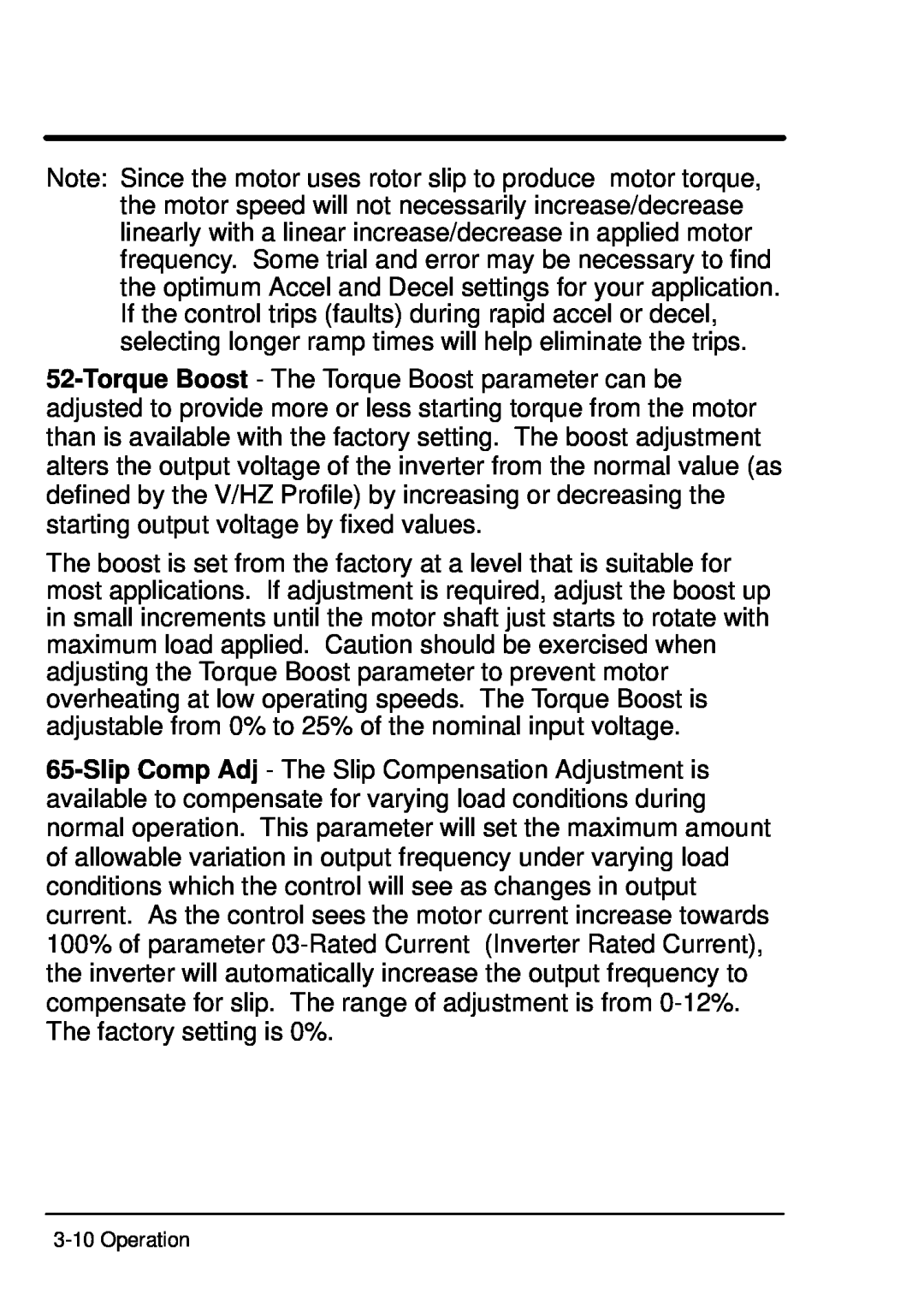
Note: Since the motor uses rotor slip to produce motor torque, the motor speed will not necessarily increase/decrease linearly with a linear increase/decrease in applied motor frequency. Some trial and error may be necessary to find the optimum Accel and Decel settings for your application. If the control trips (faults) during rapid accel or decel, selecting longer ramp times will help eliminate the trips.
52-Torque Boost - The Torque Boost parameter can be adjusted to provide more or less starting torque from the motor than is available with the factory setting. The boost adjustment alters the output voltage of the inverter from the normal value (as defined by the V/HZ Profile) by increasing or decreasing the starting output voltage by fixed values.
The boost is set from the factory at a level that is suitable for most applications. If adjustment is required, adjust the boost up in small increments until the motor shaft just starts to rotate with maximum load applied. Caution should be exercised when adjusting the Torque Boost parameter to prevent motor overheating at low operating speeds. The Torque Boost is adjustable from 0% to 25% of the nominal input voltage.
65-Slip Comp Adj - The Slip Compensation Adjustment is available to compensate for varying load conditions during normal operation. This parameter will set the maximum amount of allowable variation in output frequency under varying load conditions which the control will see as changes in output current. As the control sees the motor current increase towards 100% of parameter 03-Rated Current (Inverter Rated Current), the inverter will automatically increase the output frequency to compensate for slip. The range of adjustment is from 0-12%. The factory setting is 0%.
3-10 Operation

